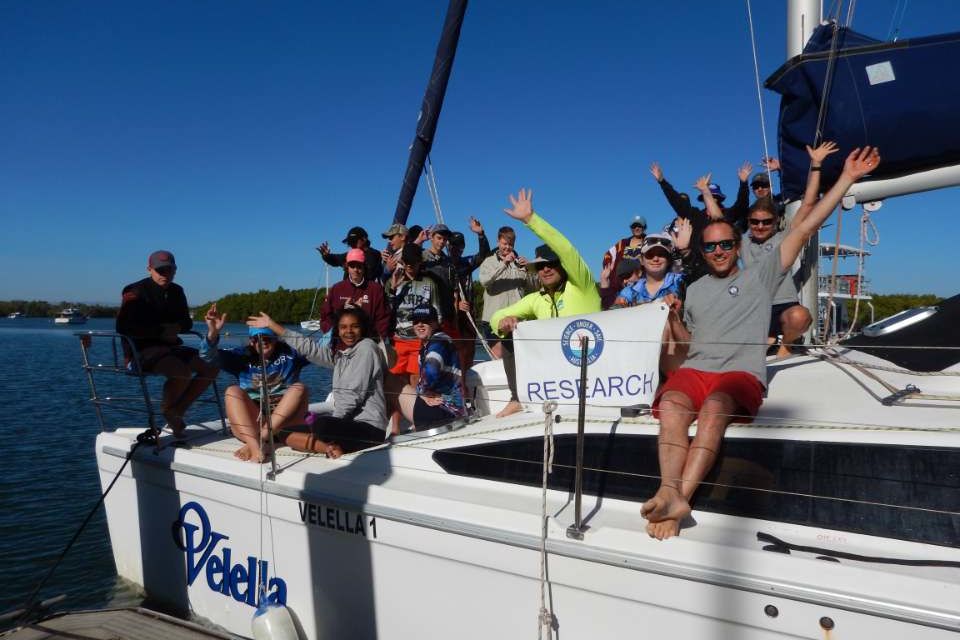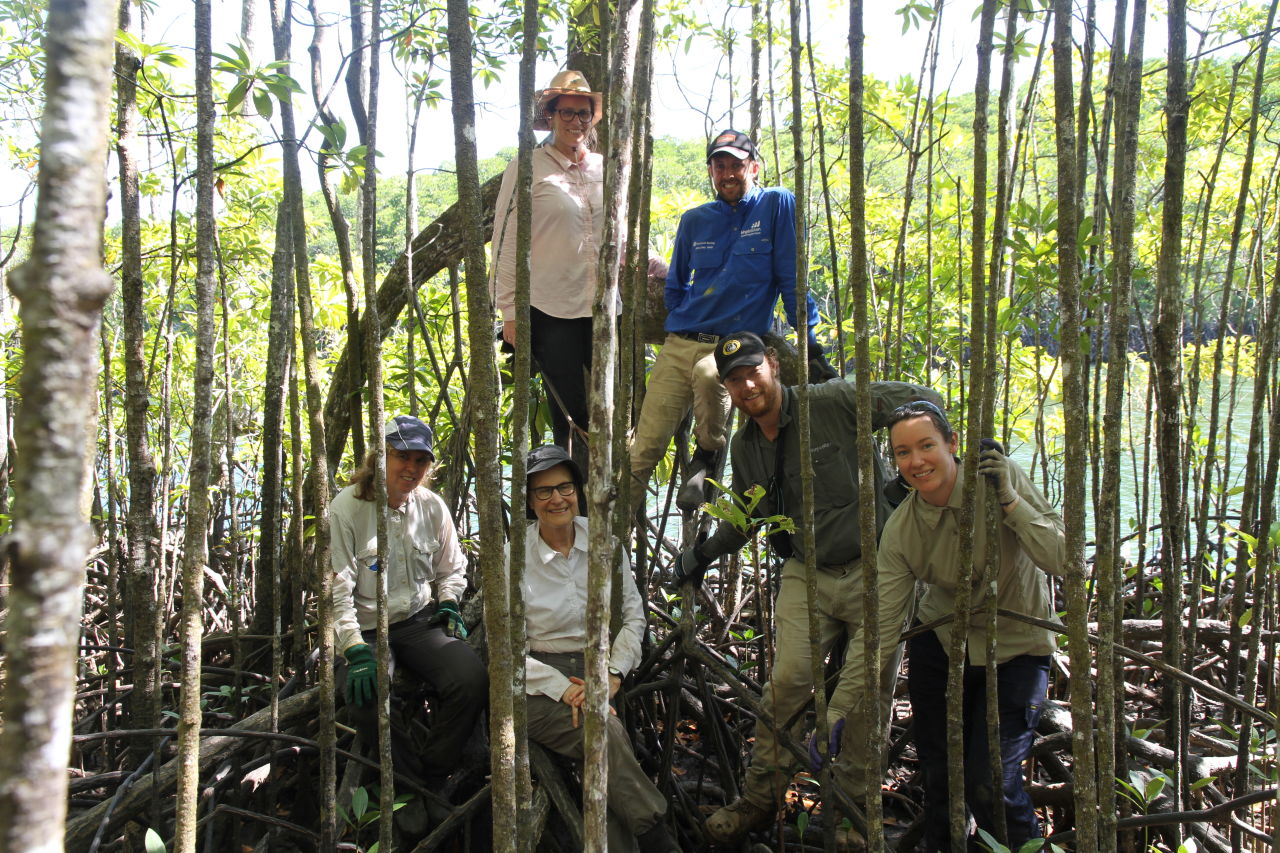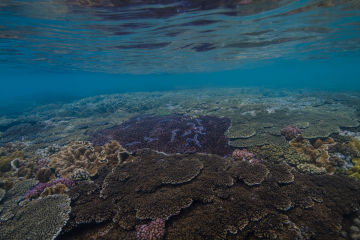Media Release ·
10 citizen science projects get all hands on deck to boost Reef protection

Ten local community projects are sounding a call to action for citizen scientists along the 2,300-kilometre length of the Great Barrier Reef to step up to help protect the Reef and the thousands of species of marine life that call it home.
From safeguarding turtle nests, spotting sawfish and monitoring mangroves and wetlands, to watching water quality, and surveying seagrass and corals, local community groups, tourism operators and marine researchers are working to recruit and train local citizen scientists. They’re giving them the skills they need to contribute to improving Reef health through 10 Reef protection projects funded by the partnership between the Australian Government’s Reef Trust and the Great Barrier Reef Foundation.
Great Barrier Reef Foundation Managing Director Anna Marsden said taking local action across Queensland’s reef communities was key to supporting the Reef protection effort.
“The 10 ‘Citizen Science for Change’ Reef protection projects underway are empowering people to be part of the solution through local on-ground and in-water action, with opportunities to participate from Bundaberg to Cairns,” Ms Marsden said.
“Valuable information and actions contributed by these 10 projects will help our Reef managers and scientists keep track of the impacts from climate change and local threats to our irreplaceable Reef and its wildlife.
“We need everyone working together in this critical decade for our Reef. That’s why we’re bringing together people and local community partners to make a real impact for our Reef. Just like the amazing effort we’ve seen already from citizen scientists and volunteers to save more than 400 turtle nests from predators and flooding.
“With the Reef experiencing its fourth mass coral bleaching in just six years, this is an opportunity for Australians from all walks of life to rise to the challenge of helping to improve our Reef’s health in a very practical way.”
The 10 projects include:
- Safeguarding important nesting grounds for endangered loggerhead, green and flatback turtles at Wreck Rock, located on the coast between Bundaberg and Gladstone
- Protecting the vanishing sawfish of the Great Barrier Reef through a collaboration with Indigenous land and sea rangers and recreational fishers
- Piloting eDNA sampling techniques to understand how water quality affects the fish that live in the Reef’s waterways
- Creating the next generation of Reef custodians through high school students joining Science Under Sail voyages to collect vital information about the health of seagrass and coral habitats across the Great Barrier Reef
- Engaging students in collecting scientific data used to monitor and protect vital mangrove ecosystems in a MangroveWatch program linked to the senior curriculum
- Protecting blue carbon ecosystems in mangroves and tidal wetlands using information collected by citizen scientists working with community partners.

These Reef protection projects build on the success of earlier achievements of the Foundation’s program of 15 citizen science projects delivered over the past three years.
Citizen scientists carried out a range of wildlife and ecosystem monitoring, reporting, training and educational activities which collectively recorded 190,000 data points over 500 days in the field, produced 14,167 engagements with community members, and recorded 21 instances of citizen science-led data being used for Reef management, planning or action.
Amongst the achievements of the completed 15 citizen science for change projects are:
- Developing the first ever citizen science assessment for mangrove and tidal wetland health across seven estuaries in the Wet Tropics and Southern Cape York regions
- Students and teachers contributing to mangrove blue carbon modelling through the EarthWatch Protecting Wetlands for the Future project
- Incorporating data collected by citizen scientists into official regional waterway report cards for the first time
- Sighting a rare 400-year-old giant coral during a citizen science snorkel survey.
For information about getting involved in citizen science, connect with our citizen science project partners here





